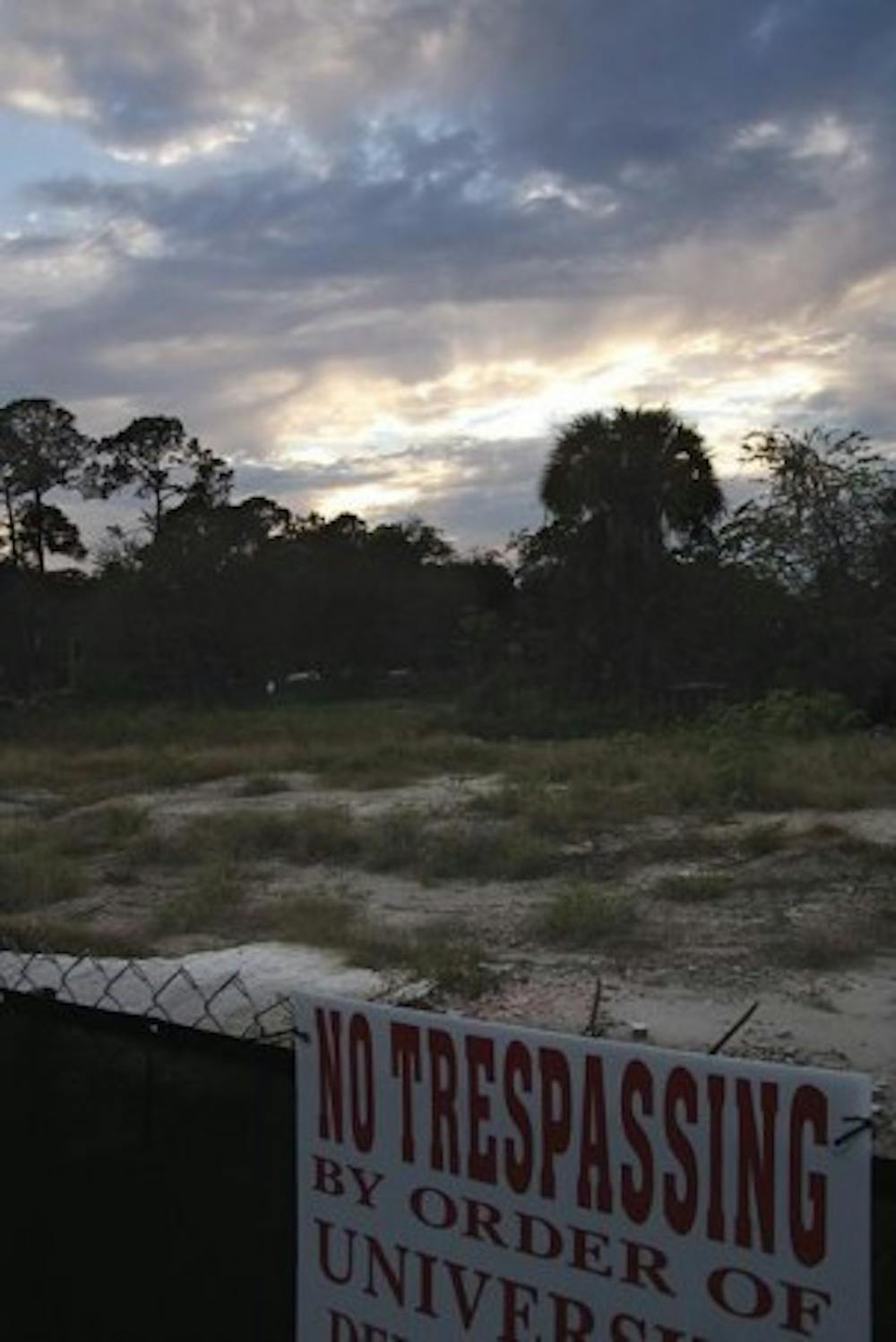Last April, demolition was finally completed to make way for high-rise condos on the northwest corner of West University Avenue and 13th Street.
So where are they?
The construction of University Corners was dependent on ,98 million from a city tax incentive program called into constitutional question by a Florida Supreme Court case in September.
Construction has halted without the guarantee of the money, which would have come from the Community Redevelopment Agency's Transformational Project Incentive Program, sometimes known as TIP.
Partner George Anderson, of Daytona Beach, said the setback is temporary.
"We're not going to give up on this project," he said. The case will be reheard in the spring.
Until then, Anderson and partner Frank Darabi have been engineering cost-saving "modifications" to the structure, such as eliminating the underground parking garage, he said.
Darabi, though, said no changes will be final until the court case is decided.
"We have made no decisions," he said. "The project is what it is."
The reimbursement has a present value of ,37 million. But since it would be paid over 20 years, it would be worth about ,98 million at the end of that period.
In October 2005, the expected cost of the project was ,1.87 million, an evaluation by the Community Redevelopment Agency said. Anderson declined to say how much the project has cost so far.
Henry Rabell, a member of the Bosshardt Realty team marketing University Corners, said the project would not have been proposed as it was without the incentive money.
Big Plans
The project is currently planned to include 400 condos - ranging from ,198,000 to ,1.2 million. About 200 of those will be "condotels," which can be rented by the day. It will include about 100,000 square feet of retail space .
Waterfalls would cascade into the plaza and run between pools on the fourth to the third floor.
For now, the waterfalls are still in the plans. But without the money from the city, the project would have to be scaled back, Rabell said.
Though the condos were once completely booked, Rabell said, reservations are down to about 50 percent with the hold-up in construction. He estimated 20 to 25 percent would come back if the court case were overturned.
"This is probably the biggest roadblock we've hit," he said.
Challenged By The Court
The court case, Strand v. Escambia County, was heard in September by the Florida Supreme Court, said Kelly Heward, a spokeswoman for the Community Redevelopment Agency, which was going to fund the incentives.
Since 2004, the Transformational Project Incentive Program funded projects that "transformed" the area by reimbursing property tax money over 15 or 20 years, she said.
Florida cities are not allowed to reimburse property tax money over more than a year without a voter referendum, but the Community Redevelopment Agency had been considered a separate entity. The court case changed that.
Projects that were already approved for the money were grandfathered in, she said, but University Corners had not signed a final agreement.
Revitalizing Gainesville
The idea behind the program was to revitalize four areas of Gainesville, Heward said: College Park and University Heights, Eastside, Fifth Avenue and Pleasant Street, and downtown.
The program was intended to last for 20 to 30 years, she said.
"Once a few projects are in the area and that area's starting to revitalize, that'll encourage other people to come in and do the same on their own," she said.
If projects met criteria, the Community Redevelopment Agency would determine how much funding the project would receive based on a point system.
After the project was completed, the Community Redevelopment Agency would pay the money by reimbursing a percentage of property taxes over 15 or 20 years. The percentage came from the difference in the property taxes after the completion of the project and the original property taxes.
Moving Out, Moving In
Before the court case, the project had displaced 19 other businesses to clear space for its building.
Randy Akerson, owner of Burrito Bros. Taco Co., used to have a storefront on the corner. Now he operates out of the Presbyterian Student Center about a block away.
When he first moved, he said he didn't know if he intended to seek space in one of University Corners' retail sections.
"Nobody knew when University Corners was going to be built, and nobody had any notion at the time the kind of rent University Corners was going to want," he said.
He said he's happy operating out of the center, but knows now he could never afford the rent University Corners is asking. He said he doesn't think many of the corner's other former businesses could, either.
Rabell said commercial space in University Corners could cost as much as ,45 a square foot per month.
"It's prime location and it's going to be very expensive," he said.
A Work In Progress
Rabell said the project could be finished by 2010, but Darabi and Anderson lose money every day they're not building.
Anderson said if the court case is overturned, ground could be broken by late summer or early fall of 20080.
If not for the case, he said, they might have started by now, or at least March or April 2008.
Although the project has met with obstacles, Rabell said he doesn't think it's taking too long. A similar condo project he worked on in Daytona Beach, called Ocean Walk, took six years to complete, he said.
"Big projects are not something you can do overnight," he said.






